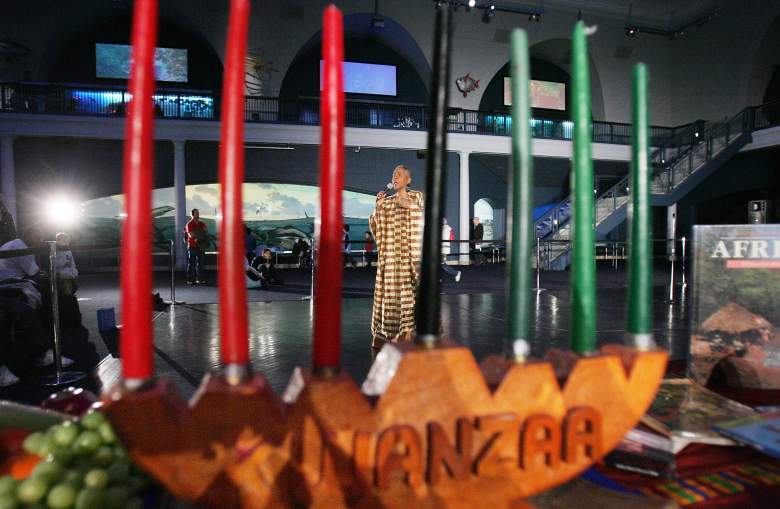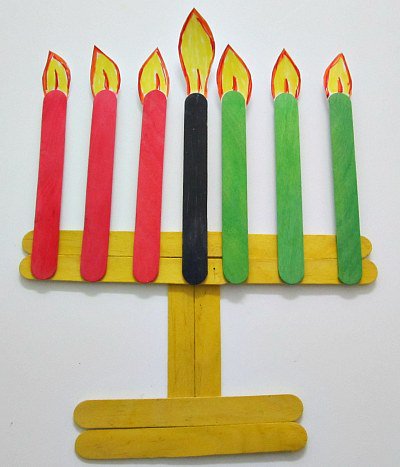
The traditional “kinara” candelabra is used to celebrate Kwanzaa, which takes place from December 26 to January 1. (Getty)
Kwanzaa is a holiday for people of African descent to celebrate their shared cultural heritage. Dr. Maulana Karenga, an Africana Studies professor at California State University started the holiday in 1966 during the civil right movement and the slow process toward desegregation. “A seven-day social holiday created to celebrate black identity, encourage unity and preserve African culture,” is how the History Channel describes the holiday.
Celebrated by millions worldwide, it is meant to be celebrated from December 26 to January 1, right between Christmas and New Year’s. It is not a religious holiday but rather a social one. Think of Kwanzaa as comparable to St. Patrick’s Day, which celebrates Irish heritage, or Cinco de Mayo, which celebrates Mexican culture. The name Kwanzaa comes from the Swahili phrase, “matunda ya kwanza,” which roughly means “first fruits.”
Some traditions include the passing of the unity cup, which each family member drinks from, and the lighting of the candelabra, the kinara, which holds the candles that represent the seven principles of Kwanzaa.
There are supposed to be three red candles (symbolizing self-determination, cooperative economics, and creativity), three green candles (symbolizing collective work, purpose, and faith) and one black candle (symbolizing unity) on the kinara. The black candle, called the Umoja, stands in the middle and is lit on the first night while the three red candles are placed to the left and the three green are placed to the right. Each night the principle each candle represents is discussed. Dancing and singing are also part of this holiday.
Some important symbols for this holiday include an ear of corn, which represents children in the community, a place mat made of straw, which symbolizes historical foundation, and crops, which symbolize work, according to the History Channel.

